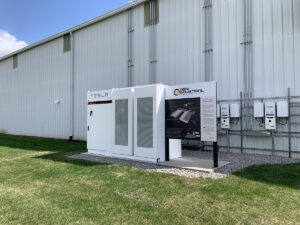Battery Energy Storage Overview
Best Battery Energy Storage Overview
There are many benefits to using battery energy storage systems. These devices store energy and are a cost-effective alternative to fossil-fuelled power plants. In many applications, batteries can produce as much as three times more energy than they require. In addition, they are environmentally friendly and will produce less emissions than fossil-fueled power plants.
As with any other technology, choosing the right team is the key to a successful battery energy storage system. Make sure to hire professionals with relevant experience. You will need specialists in electrical engineering, mechanical engineering, and low-level firmware to design and build a battery energy storage system. You can also consider hiring a team of software engineers and electrical engineers to ensure your project is done right. You can save a lot of money by working with a specialized team.
Battery energy storage solutions can help your energy bill by balancing loads between on-peak and off-peak periods. The demand for electricity varies depending on time, day of week, and season. Higher demand leads to higher electricity costs while lower demand leads to lower prices. These storage solutions allow you to “peak-shave” – shift PV production to later hours of the day and avoid paying peak electricity rates.
The SPECs project webpage shares information and resources for local utility storage project planners and solar-plus project planners. It includes a webinar about battery storage system technology and a fact sheet of current industry players. Further, it offers a guide on battery storage applications, and a fact sheet on the topology of various players.

Battery Energy Storage Overview
The demand for energy storage systems is growing. The International Energy Association estimates that a total of 266 gigawatt-hours of storage will be installed by 2030. The Bloomberg New Energy Finance estimates that the amount will grow to 942 GW by 2040. This would require an estimated 620 billion dollars of investment.
The benefits of battery energy storage systems are numerous. They range from small household devices to large-scale systems for utilities and industrial applications. More than 31,000 households in Australia and over 100,000 in Germany are expected to use a battery energy storage system by 2020. Meanwhile, large-scale BESSs are already in operation in many countries. These systems are becoming increasingly important as they help make renewable energy more affordable and reliable.
Battery energy storage systems are more advanced than ordinary household batteries. They use computerised control systems and intelligent battery software to co-ordinate energy production. They also release energy during times of peak demand, keeping costs down and electricity flowing. Battery energy storage is a cost-effective alternative for electricity supply. However, it is important to choose the right system to meet your specific needs.
As the cost of energy increases, a battery energy storage system has become a popular solution for many businesses and utilities. The advantages of battery energy storage are considerable, whether you need an additional power source for industrial use or a household battery energy storage system. The technology for battery storage is more advanced and affordable than ever.